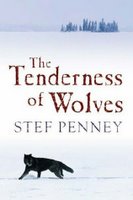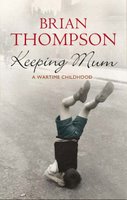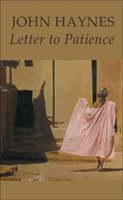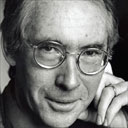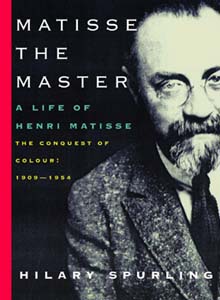
It strikes me that several British novels (all by women) seem to be exploring the same territory: Nicola Barker's
Darkmans, Hilary Mantel's
Beyond Black and now Catherine O'Flynn's
What Was Lost are set in post-industrial landscape which is ugly, dehumanised and despairing, and the ghosts of the past are clawing their way through the fabric of time to meddle with the present.
Catherine O' Flynn sets her novel in a Birmingham shopping mall, Green Oaks (actually the main character in the book) while the ghost in question is that of a ten year-old girl, Kate Meany, who went missing (presumed murdered) back in 1980. She appears one night on the CCTV camera of security guard Kurt, while Lisa (deputy manager of Your Music shop) finds a toy stuffed behind the pipes in a service corridor. The novel unfolds as a kind of whodunnit mystery.
The first section of the book takes place in the year Kate, aged 10, disappeared. The story of little Kate playing at detectives with her stuffed monkey Mickey in tow is charming and Kate and her rebellious friend Theresa are the most fully realised and likable characters in the book. If this first section reads like the start of a children's novel, the story soon moves on to more sinister stuff.
I've always felt that shopping malls despite their surface glitz and glamour have a dark underbelly.
Detour - I can't stay long in the big ones without feeling that I'm going to have a panic attack from all the sensory overload (honestly!). I remember being utterly freaked out 1 Utama car park at night hearing Vivaldi's
Four Seasons on the loudspeakers echoing through soulless concrete caverns. It was just like the use of hearing
Beethoven's 9th in Stanley Kubrick's film A Clockwork Orange - dismayingly incongruous!
In O'Flynn's novel, Green Oaks (apparently modelled on
the Westfield mall) acts as a giant magnet, drawing in the dispossessed and dissatisfied who mooch around the shops all day with nothing better to do and nowhere better to go. O'Flynn is a careful observer, maybe because she herself has worked in retail and been a
mystery-shopper and thus experienced of much she writes about, and she is at her best recording the disembodied voices which themselves float, ghost-like, through the mall.
Another detour - I used to work in one of the Birmingham-based shops she mentions in the first section - Midland Educational in their toyshop branch, Barnaby's and there was much in the book that took me back to that time. The utter dead-endness of the job, the petty rivalries between the staff, the sheer exhaustion of having to remain on your feet and be polite to people for hours at a time.
I felt such pain for the poor old man in O'Flynn's book, strung along sadistically for 23 months waiting for his order of a classical cassette that never comes ... because I can remember serving on the most hated counter in the toyshop - the one customers came to for their repairs of
Hornby model trains and
Scalextric cars. Week after week I'd have to see the same faces, and have to answer the same questions about when their repairs were coming back. And of course politely fob the customers off until the next week. (Oh, I tell you, this book brought back memories!)
Malaysians with their love of shopping malls will definitely be able to relate to the book. It's also an enjoyable, fairly breezy read, although there is such an undercurrent of sadness for what was lost.
And what
was lost, in the end? A girl's life, sure, but there are other poignant losses along the way - hope, ambition, self-esteem, a sense of direction.
But perhaps other things are gained. Theresa has Kate to thank for her success in life, and the mystery brings together Kurt and Lisa and shakes them out of their ruts. Above all, the novel ends with a sense of painful things finally being resolved.
The novel is very cleverly and neatly plotted, even if it can be argued (as some readers have) that there is a little too much coincidence at the end. Maybe, in that sense, that makes it a good antidote to
Darkmans and Anne Enrights
The Gathering where we are left with only loose ends in our hands when we try to conclusively solve the central mystery.
I'm happy for O'Flynn that Tyndall Street Press took a risk on her and look forward to seeing what she does next. The novel, you will recall, was longlisted for the Booker, shortlisted for the Orange Prize and has just won the Costa First Novel Award. Not bad at all!
Here's an interview with O'Flynn bout the book
from Brightcove. How nice to hear a Brummy accent again. (I used to have one ...).
 The Costa Book Awards have been announced.
The Costa Book Awards have been announced.
















